Palabras clave:
Acumulación primitiva, apropiación de tierras, capitalismo, globalización, neoliberal.Resumen
Este artículo busca presentar cómo el tema de la apropiación de tierra puede ser considerado como una consecuencia de la expansión del capitalismo en el marco de la globalización neoliberal y como un ejemplo se considera el caso de Colombia. En primer lugar un marco teórico introduce el concepto de expansión del capitalismo y globalización neoliberal con diferentes autores; se inicia con Karl Marx y el concepto de acumulación primitive, Después Rosa Luxemburgo y el Capitalista Landnahme y Daid Harvey con el concepto de acumulacion por despojo. Una segunda parte de la parte teórica incluye las posiciones de SaskiaSasen, Susan George y Vandana Shiva, quienes consideran la apropiación de tierras como parte de la expansión delcapitalismo. Estas posiciones también contemplan las consecuencias del despojo de la tierra como el desplazamiento, pobreza, hambre y desigualdad. En una forma de ver cómo este proceso que se ha desarrolado en el mundo este documento incluye el caso de Colombia, en el cual se resalta las principales consideraciones acerca de la apropiación de tierras en este país.
Descargas
Citas
Amanor, K. S. & Moyo, S. eds. (2008). Land and Sustainable Development in Africa. London: Zed Books.
Anseeuw, W., L. Alden Wily, L. Cotula, & M. Taylor. (2012). Land Rights and the Rush for Land: Findings of the Global Commercial Pressures on Land Research Project. Rome, ILC.
Brandford S. and Rocha J. (2002). Cutting the Wire: The Story of the Landless Movement in Brazil. London, Latin American Bureau.
Brewer, A. (1990). Marxist Theories of Imperialism: A Critical Survey. London: Routledge.
Bush, R. (2007). Poverty and Neoliberalism: Persistence and Reproduction in the Global South. London: Pluto Press.
Cancillería: Ministerio de Relaciones Exteriores. (2013).Tratados de Libre Comercio (TLC), Retrieved from http://www.cancilleria.gov.co/international/politics/fta, 8 September 2013.
Chakrabarti, S. & Graziano Da Silva, J.(2013). Hungry for Investment. Retrieved from http://online.wsj.com/article/SB100008723963904436860045776330801 90871456.html#printMode?KEYWORDS=Jose+Graziano+da+Silva+Suma+Chakrabarty.
Deininger K. & Byerlee, D. with Lindsay, J., Norton, A., Selod H. & Stickler M. (2011). Rising Global Interest in Farmland: Can it Yield Sustainable and Equitable Benefits? Washington, D.C. The World Bank.
Dinero.com. (2013). En los TLC, no es firmar por firmar. Retrievedfrom www.dinero.com/actualidad/nacion/articulo/en-tlc-no-firmar-firmar/179385, 7 September 2013
Domínguez, J. C. (2013). Inversión extranjera pone el ojo en el campo. Retrieved from http://www.portafolio.co/economia/inversion-extranjera-pone-el-ojo-el-campo
Dörre, K. (2010). Social Classes in the Process of Capitalist Landnahme: On the Relevance of Secondary Exploitation. Social Studies, 6 (2), 43-74.
Dörre, K. (2011). Capitalism, Landnahme and social time regimes: An outline. Time and Society, 20 (1), 69-93.
Eventon, R. (2013).The War on Colombian’s Poor, Transnational Institute. Retrieved from www.tni.org/print/article/war-colombias-poor.
FDRE Ministry of Agriculture. (2013). Vision, mission and objective. Retrieved from http://www.moa.gov.et/web/pages/vision-mission-andobjective
Food and Agriculture Organization of the United Nations (FAO). (2013). Trends and impacts of foreign investment in developing country agriculture Evidence from case studies. Retrieved from: http://www.fao.org/fileadmin/templates/est/INTERNATIONAL-TRADE/FDIs/Trends_publication_12_November_2012.pdf.
Food crisis and the global land grab Documentary Planet for Sale2 [Online video]. Retrieved from http://www.youtube.com/watch?NR=1&v=IU1-PpxqeZc& feature=endscreen
George, Susan (1990). III Fares the Land: Essays on Food, Hunger and Power. London: Penguin Books.
George, S. (1999). The Lugano Report: On Preserving Capitalism in the Twenty-first Century. London: Pluto Press.
George, S. (2004). Another World is Possible if... London: Verso.
George, S. (2010). Whose Crisis, Whose Future? Towards a Greener, Fairer, Richer World. Cambridge: Polity Press.
Geras, N. (1976). The Legacy of Rosa Luxemburg. London: NLB.
Grajales, J. (2013). State Involvement, Land Grabbing and Counter-Insurgency in Colombia, Development and Change, 44:2, 211-232.
Haarstad, H., Amen, M. & Lera St. C. A. (2012). Social Movements, the Poor and the New Politics of the Americas, Globalizations, 9:6, 741-752.
Harvey, D. (2007). A Brief History of Neoliberalism. Oxford: University Press.
Harvey, D. (2010). The Enigma of Capital: and the Crises of Capitalism. London: Profile Books.
IFAD (2011). Rural Poverty Report 2011. Rome: IFAD.
Kliman, A., Freeman, A., Potts, N.,Gusev, A. & Cooney, B. (2013). Papers from David Harvey & Capitalist Accumulation. Marxist-Humanist Initiative. Retrieved from www.marxisthumanistinitiative.org/uncategorized/papers-from-left-forum.html
Kreisler, H. (2013). David Harvey Interview: A Geographer’s Perspective on the New American Imperialism. Conversations with History, Institute of International Studies, UC Berkeley. Retrieved from globetrotter. berkeley.edu/people4/ Harvey/harvey-con4.html
La Vía Campesina, International Peasant’s Movement. (2013). What is La Via Campesina. Retrieved from http://viacampesina.org/en/index.php/organisation-mainmenu-44/what-is-la-via-campesina-mainmenu-45.
Levy, Ch. (2012). Social Movements and Political Parties in Brazil, Globalizations, 9:6, 783-798.
Luxemburg, R. (1971). The Accumulation of Capital. London: Routledge and Kegan Paul Ltd.
Mahon, M. (2013). “Interview with David Harvey”.The White Review. Retrieved from www.thewhitereview.org/interviews/interview-withdavid-harvey/.
Margulis, M. E., McKeon, N. & Borras, Jr. S. M. (2013). Land Grabbing and Global Governance: Critical Perspectives, Globalizations, 10:1, 1-23.
Marx, K. (2013). Capital. Londo: Wordsworth.
Ministerio de Comercio, Industria y Turismo (s.f.) Acuerdo de Promoción Comercial entre la República de Colombia y Estados Unidos de América. Retrieved from https://www.mincomercio.gov.co/tlc/publicaciones.php?id=14853
Ministerio de Comercio, Industria y Turismo, (2013). Acuerdos Vigentes. Retrieved from https://www.mincomercio.gov.co/tlc/publicaciones.php?id=5398
Movimento dos Trabalhadores Rurais Sem Terra, MST. (2013). Nossa Historia. http://www.mst.org.br/node/7702
Navdanya. (2013). Seed Sovereignty. Retrieved from http://www.navdanya.org/earth-democracy/seed-sovereignty
Paarlberg, R. (2010). Food Politics: What everyone needs to know. Oxford: Oxford University Press.
Patnaik U. & Moyo, S. (2011). The Agrarian Question in the Neoliberal Era: Primitive accumulation and the Peasantry. Oxford: Pambazuka Press.
Presidencia de la República de Colombia, (2013) “Palabras del Presidente Uribe en el Lanzamiento del Libro sobre el TLC. Jorge Ramírez Ocampo, julio 26 de 2007”. Retrieved from web.presidencia.gov.co/discursos/discursos2007/julio/tlc.htm, 7 Septembre 2013)
Presidencia de la República de Colombia, (2007). “Palabras del Presidente Uribe durante el Consejo Comunal de Gobierno en Santa Marta. Julio 5 de 2007. Retrievedfromeb.presidencia.gov.co/discursos/discursos2007/julio/cc_40.Htm
Reading Marx’s Capital Vol. 1 – Class 12, Chapters 26-33 [Online video].Retrieved from http://davidharvey.org/2008/09/capital-class-12/
Sassen, S. (2010). A Savage Sorting of Winners and Losers: Contemporary Versions of Primitive Accumulation. Globalizations, 7:1, 23-50.
Sassen, S. (2013). Land Grabs Today: Feeding the Disassembling of National Territory. Globalizations, 10:1, 25-46.
Shiva, V. (2000). Stolen Harvest: The Hijacking of the Global Food Supply. London: Zed Books.
Shiva, V. (2008). Soil not Oil: Climate Change, Peak Oil, and Food Security. London: Zed Books.
Smita Narula “The Global Land Rush: Markets, rights, and the politics of food” Stanford Journal of International Law, 49 (2013):114
Susan George on Neoliberalism [Online video]. Retrieved from http://www.youtube.com/watch?v=_viNHVzadeM
Stephens, Ph. (2013). The Principles of Responsible Agricultural Investment. Globalizations, 10:1, 187-192.
Thomson, F. (2011). The Agrarian Question and Violence in Colombia: Conflict and Development. Journal of Agrarian Change 11:3, 321-356.
UNHCR, The UN Refugee Agency, “Internally Displaced People Figures”. Retrieved from http://www.unhcr.org/pages/49c3646c23.html, 8 September 2013)
Wilson, T. D. (2012). Primitive accumulation and the Labour Subsidies to Capitalism. Review Radical Political Economics, 44 (2), 201-212.
Woertz, E. (2013). The Governance of Gulf Agro-Investments. Globalizations, 10:1, 87-104.
Wolford W., Borras Jr. S. M., Hall, R., Scoones, I. & White, B. (2013) Governing Global Land Deals: The Role of the State in the Rush for Land. Development and Change, 44:2, 189-210.





